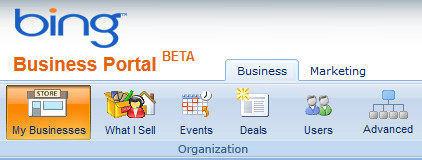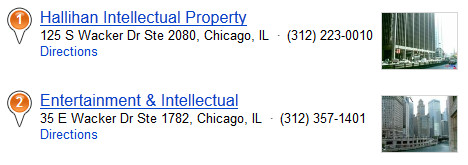10 Basic Bing Local Optimization Tips
Local business marketers often hyper-focus on Google search rankings, but it’s important not to forget that even if Bing and Yahoo! do not have the lion’s share, even 15% of search volume can create a sizable number of potential business referrals. So, here are a few basic tips for optimizing for Bing Local search rankings. […]
Local business marketers often hyper-focus on Google search rankings, but it’s important not to forget that even if Bing and Yahoo! do not have the lion’s share, even 15% of search volume can create a sizable number of potential business referrals. So, here are a few basic tips for optimizing for Bing Local search rankings.
Optimization of business profiles in the Bing Business Portal (or “BBP”) is not difficult nor time-consuming. Microsoft’s newish Beta interfacing for administrating business listing details is actually pretty slick and easy to use.
10 Tips For Optimizing Local Business Listings In Bing
1. The first key is to claim your business listing
As with other local search engines, having a business owner claim a listing helps to validate the information and establish that the business is active, helping increase “trust ranking” factors.
One of the hardest issues for local search engines and online directories to handle is figuring out which businesses have expired so that they can remove their listings from the databases — so, they have a horror of displaying stale listings to consumers. It’s reasonable to think that businesses which have some signal indicating they’re active will be more likely to be presented more prominently to searchers.
2. Correct and standardize your basic business contact information
The core contact information needs to be consistently shown in all major places including in Bing Local. The basic contact data is the business Name, Address, and Phone # (a.k.a. “N.A.P.”) — along with the website URL.
3. Add an image to your listing!
One striking characteristic of Bing Local searches is how higher-ranking businesses appear to more frequently have images associated with their listings! (See also my earlier articles on optimizing images for local search here and here.) Could be that listings that have images are claimed, and rank higher due to that status, or it could be directly related to the presence of the thumbnails.
Either way, businesses that have pics may have greater chance of ranking well in Bing Local. Example – top two listings for a search for “intellectual property attorneys, chicago, il”:
4. Set your hours of operation!
Bing Local business profiles actually include a small sign icon. While I haven’t tested this, I wouldn’t be surprised if businesses might be a little more likely to rank better during times when they list themselves as being open, particularly in mobile search.
Even if it isn’t a direct ranking signal, however, the fact that the profile page gets the bright, attention-getting icon makes it worthwhile as a possibly conversion-increasing element!
5. Check your categories, and add more where possible!
Business categories like “Plumbers”, “Florists”, and “Attorneys” are core elements involved in local search rankings, yet they can often be wrong or so minimally specified as to detract from the promotion potential that business listings would otherwise possess.
When a local search keyword matches a business’s category — either partially as a “fuzzy match” or as a thesaurus match — the listing is far more likely to rank for it.
6. Go a step beyond categories
Bing appears to treat “Specialities” similarly to categories or like subcategories, so add relevant specialties.
7. For restaurants, integrate with OpenTable
Integrating with OpenTable to handle reservation scheduling will enable a convenient “reservations” link to appear on the profile page in Bing.
8. Add deals to your listing!
Bing appears to have also integrated with Groupon, so if you have a Groupon offer going on, it could appear with your local listing in Bing, too. But, Bing Group Deals may be set up directly within the BBP as well.
9. Develop citations!
Just as with Google Place Search and Google Maps, Bing Local listings need to have citations and inlinks in order to rank well. Local citation sources which may be influential in Bing include YP.com, Superpages.com, Yahoo! Local, Manta, Judy’s Book, and more. Vertical directories also likely work well here, too, such as Restaurants.com, FindLaw.com, Dentists.com, Contractors.com, etc.
10. Optimize your local business website
Having a well-optimized local biz website helps all of your external optimizations work hand-in-hand with the on-site optimization. Businesses with good website optimization have a better chance of ranking well and getting found by consumers seeking their products and services.
Bing and other search engines compare listing information against the information found on the website, so keeping the listing data and “N.A.P.” consistent helps reinforce and validate the vital local search criteria.
These basic local optimization tips are pretty obvious to any experienced local marketer, but it’s always amazing how many local businesses fail to check their listings for correctness, consistency and areas where information may be expanded or enhanced.
Sites which follow these simple tips often get an edge over their competition — and, in internet marketing the “early worm” which grabs marketshare first often gets an advantage that extends well into the future. For more details around optimizing local directory profiles, see my earlier article, Anatomy & Optimization Of A Local Business Profile.
Opinions expressed in this article are those of the guest author and not necessarily Search Engine Land. Staff authors are listed here.
Related stories
New on Search Engine Land


